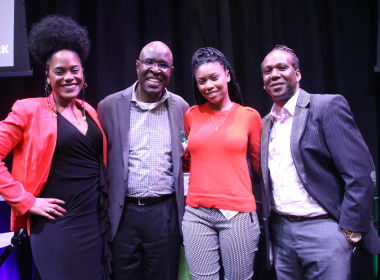Google is being held to task. Rev. Jesse Jackson recently launched a campaign to diversify Silicon Valley by leading delegations to annual shareholder meetings at firms including Google, Facebook, eBay Inc. and Hewlett-Packard about bringing black and Hispanics into their work force and leadership.
The results are appalling, but not shocking. Google suffers from a bell hooks-described classic case of “white supremacist capitalist patriarchy,” with its workforce of about 44,000 (as of the start of this year) being very white and male. Only 2 percent of its Googlers are black, 3 percent are Hispanic and 30 percent are women.
The good thing about this research and being transparent with its finding, is the tech giant owns its missteps in hiring practices and are taking major steps forward.
“Simply put, Google is not where we want to be when it comes to diversity,” Google Inc. senior vice president Laszlo Bock wrote in a blog.
The racial data is limited to Google’s roughly 26,600 workers in the U.S. as of August 2013, according to data compiled by AP writer Martha Mendoza.
Facebook, Apple Inc., Twitter, Hewlett-Packard Co. and Microsoft Corp., to date, have not disclosed data. Companies are not required to disclose the information.
“But we’re the first to admit that Google is miles from where we want to be, and that being totally clear about the extent of the problem is a really important part of the solution,” he said.
Google has donated over $40 million to organizations working to bring computer science education to women and girls and they are working with HBCUs to elevate coursework and attendance in computer science, according to Bock.
Gender and ethnic disparities are reflected throughout the tech industry. About 7 percent of tech workers are black or Latino in Silicon Valley and nationally. Blacks and Hispanics make up 13.1 and 16.9 percent of the U.S. population, respectively, according to the most recent Census data.
Their work is not done. Google has teamed up with Kapor Center for Social Impact to hone in on issues of technology and diversity
“Google is the company known for the moonshot, and applying that part of Google DNA to this problem is a breath of fresh air,” she said.
Rev. Jackson also commends Google, “It’s a bold step in the right direction. We urge other companies to follow Google’s lead,” he said. “Silicon Valley and the tech industry have demonstrated an ability to solve the most challenging and complex problems in the world. Inclusion is a complex problem – if we put our collective minds together, we can solve that too.”















